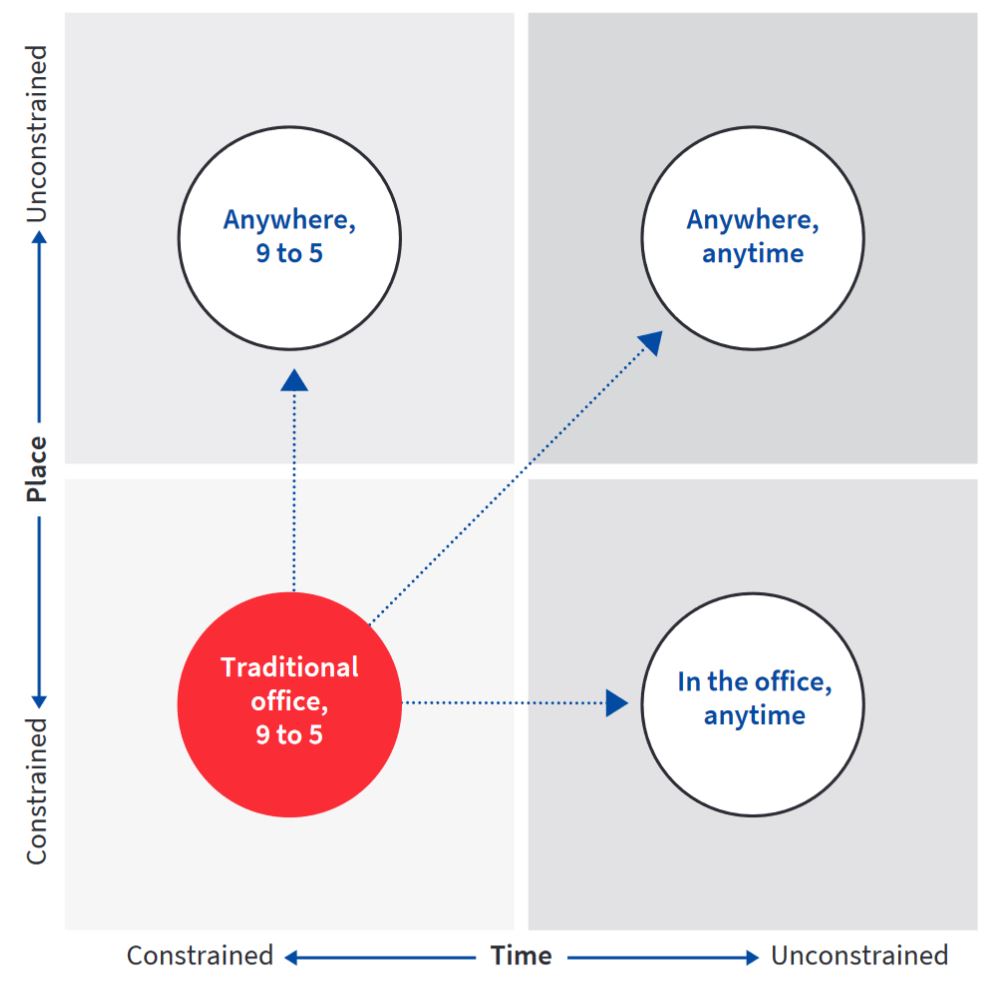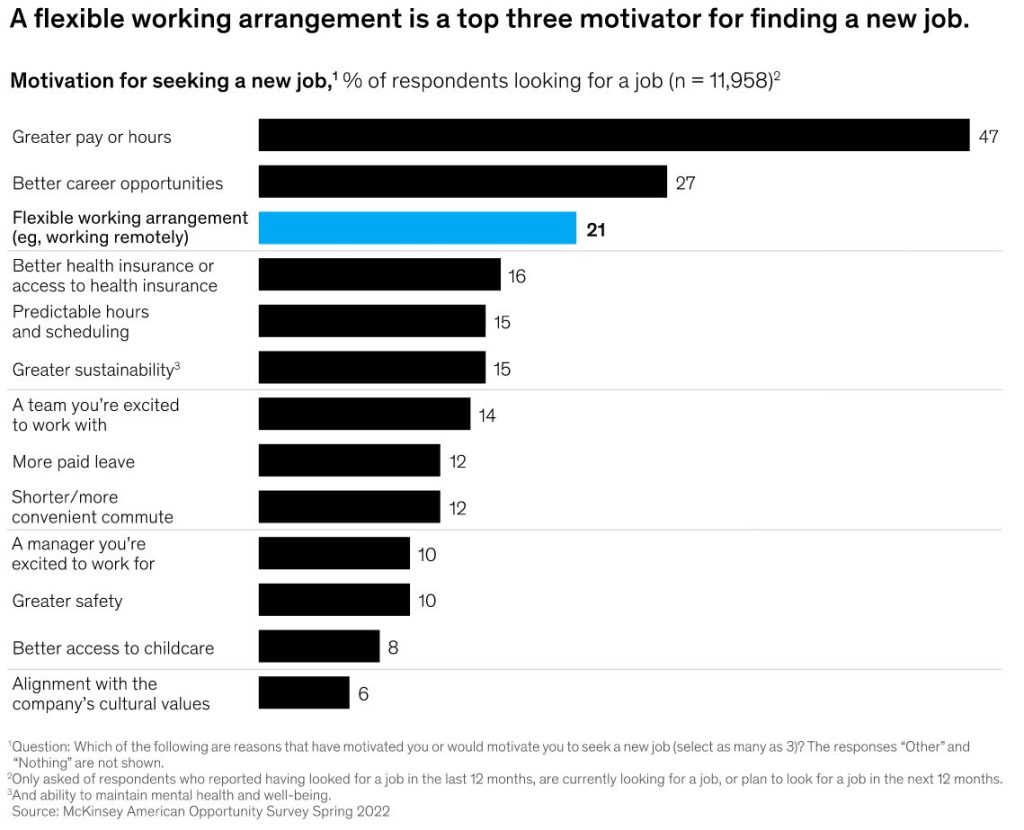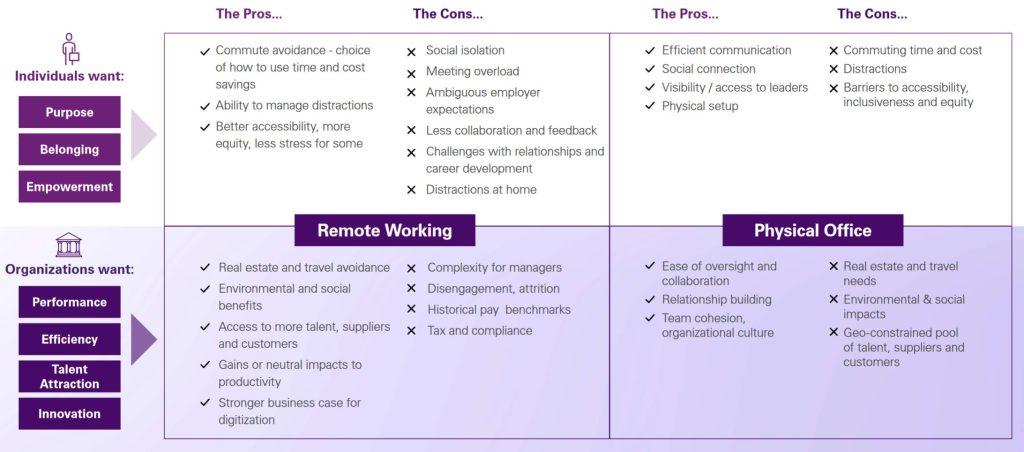
What does the future of remote working look like?
Three years into the pandemic its difficult to say anything original about remote working. There is an abundance of surveys and opinion pieces, which report on the positives and negatives of remote work and often aim to predict its future impacts. Fact is, most people whose jobs allow them to work remotely, have done so since 2020 and will have their own opinions and experiences with it.
According to some data, the amount of purely remote work is generally decreasing, but there is a far greater consensus regarding hybrid work: its clearly going to become a cultural fixture. There are a variety of studies which show that most people prefer at least partially, if not fully remote work, and more flexible schedules. A recent McKinsey survey also identified the desire for flexible work arrangements as one of the top three factors motivating people to seek new jobs.

I have previously written about remote work and why it often isnt as easy and ideal as its made out to be. From a lack of trust between employees and their management, to weaker team cohesion and job engagement, working remotely can be hard. My own work and research the last two years has been entirely remote, making them a constant exercise of self-discipline. But I also know that in my wider social circle hybrid work is very common and is regarded as a good tool to balance out different workloads and tasks. Simply said, it is a different way of working, and as such presents its very unique challenges.
The Art of Hybrid Work
The art of hybrid work largely comes down to leveraging the advantages it creates, quickly addressing its challenges and being very intentional about how time is spent on-site versus at home.
Ben Wigert for Gallup, The Advantages and Challenges of Hybrid Work
Obviously not every job is suited to remote work, and not everyone will flourish working remotely. There are many advantages and disadvantages to remote work, from the perspectives of employees as much as employers. As I mentioned above, it can be quite hard, especially if you struggle with self-discipline or managing distractions. We all have slightly different needs and styles of self-management, and not everyone will thrive working from home – some people simply need the spatial separation and direct contact to their team to feel happy doing their work.

But there are other, more structural factors which can impact our ability to work remotely. For example, the Global Remote Working Index (GRWI) mainly measures suitability for remote working using four categories: cyber safety, economic safety, digital and physical infrastructure, and social safety. This was a global survey but Europe generally performed very well in the 2023 index, with Denmark, the Netherlands, and Germany being the the top three scorers.
What all these surveys show, is that there is a healthy appetite for remote and generally more flexible working arrangements. But as this becomes more culturally ingrained, corporate culture and management styles will have to adapt to embrace and grow with a culture of remote working. After all, not everything that works well in an office, will translate flawlessly into a Teams call.
Sources and Data
A hybrid workplace guide – KPMG
Global Indicator: Hybrid Work – Gallup
Global Remote Work Index 2023 ranks remote-working countries | World Economic Forum
GRWI 2023: top global remote work destinations | NordLayer
Has the remote work era come to an end? New survey results | World Economic Forum
How to Do Hybrid Right – Harvard Business Review
Is remote work effective: We finally have the data | McKinsey
Remote Work Statistics & Trends In (2023) – Forbes Advisor
State of the Global Workplace Report – Gallup
The Advantages and Challenges of Hybrid Work – Gallup

